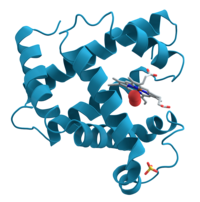History of biochemistry

Hey kiddo, do you remember that every living thing around us is made up of tiny parts called cells? Biochemistry is like a secret code that helps scientists understand how these cells work and what makes them alive.
A long, long time ago, people used to think that only living things had something called "life force" in them that made them different from non-living things. But in the 19th century, some clever scientists started to discover that there were really tiny things inside living things that helped keep them alive. These tiny things were called molecules.
These scientists, like Louis Pasteur and Friedrich Wöhler, started looking at these molecules and figuring out how they worked together to make living things function. They discovered really important things like proteins, enzymes, and DNA. As they kept learning more and more about molecules and how they worked in living things, they were able to create new medicines, diagnose diseases, and even create genetically modified organisms.
Today, biochemists are still learning new things all the time about how cells work and how to use this knowledge to help people. They're working on exciting things like creating new vaccines, understanding how cancer cells grow and spread, and trying to find ways to create new sources of energy. And who knows, maybe one day you'll be a biochemist and discover something really cool too!
A long, long time ago, people used to think that only living things had something called "life force" in them that made them different from non-living things. But in the 19th century, some clever scientists started to discover that there were really tiny things inside living things that helped keep them alive. These tiny things were called molecules.
These scientists, like Louis Pasteur and Friedrich Wöhler, started looking at these molecules and figuring out how they worked together to make living things function. They discovered really important things like proteins, enzymes, and DNA. As they kept learning more and more about molecules and how they worked in living things, they were able to create new medicines, diagnose diseases, and even create genetically modified organisms.
Today, biochemists are still learning new things all the time about how cells work and how to use this knowledge to help people. They're working on exciting things like creating new vaccines, understanding how cancer cells grow and spread, and trying to find ways to create new sources of energy. And who knows, maybe one day you'll be a biochemist and discover something really cool too!
Related topics others have asked about:
